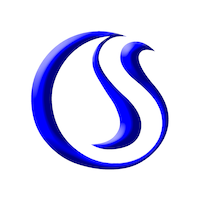A Seminar for the Study of the Paradoxes of Quantum Theory
Those who are not shocked when they first come across quantum theory cannot possibly have understood it.
- Niels Bohr
The existing scientific concepts cover always only a very limited part of reality, and the other part that has not yet been understood is infinite. Whenever we proceed from the known into the unknown we may hope to understand, but we may have to learn at the same time a new meaning of the word 'understanding'.
- Werner Heisenberg
Course Description
This seminar, which is periodically offered by CSS, is intended for anyone with a serious interest in deepening their understanding of the paradoxes and counter-intuitive features of quantum mechanics. The emphasis will be on how the paradoxes challenge our naive notions of reality and open our minds to new possibilities rather than on presenting, promoting, or adopting any particular view of physical reality. We will explore nonlocality and Bell's theorem, entanglement and decoherence, wave function collapse and the measurement problem, and examine different interpretations of quantum theory. Although no scientific or philosophical background is presupposed, discussions may at times be technical in nature, delving into physics and philosophy.
The seminar is led by Tom McFarlane, author of Einstein and Buddha: The Parallel Sayings. Tom has a degree in physics from Stanford University, and advanced degrees in mathematics and philosophy. Tom is also on the board of directors of the Center for Sacred Sciences.
Syllabus
Following is a tentative weekly schedule of topics and materials for the seminar.
-
Overview of the seminar; The nature of theories
- Questioning the Scientific Worldview, an article by Joel in the CSS newsletter, 2001
- "Beyond Theories" (a Sunday talk given at CSS, 2004) listen to the audio
-
The tenets of naive realism; science and religion
- Integrating Science and Religion, an interview with Alan Wallace
- Science and Mysticism in the Twentieth Century, an article by Joel in the CSS newsletter, 1999
-
Introducing quantum theory and the paradoxes
- Quantum Physics Encounters Consciousness: An Interview with Bruce Rosenblum read the interview
- Quantum Koans: Experiments that Confound, Perplex, and Bewilder watch the video
-
Particles, waves, and materialism
-
The Illusion of Materialism , an article by Tom in the CSS newsletter, 1999
-
The Illusion of Materialism , an article by Tom in the CSS newsletter, 1999
-
Measurement, wave function collapse, and observation
- Consciousness and Quantum Mechanics, an article by Tom
- Measurement in QM FAQ read the article
-
Interpretations
- Interpretation of QM at Wikipedia read the article
- The Great Debate in Quantum Physics (CSS talk by Tom and Damien) listen to the audio
-
The Einstein-Bohr debates, EPR, and Bell's theorem
- EPR paradox on Wikipedia
- Bell's theorem on Wikipedia
- Einstein and Quantum Nonlocality: A Doorway to Emptiness and Compassion read the article
-
The hard problem of consciousness
- Exploring Actuality through Experiment and Experience by Piet Hut - read the article
- Untangling the Hard Problem of Consciousness by Todd L. Duncan - read the article
-
Volition and free will
- Volition and Physical Laws by Jean Burns - read the article
- Summary / Questions and Answers / Discussion
The following books are recommended as supplementary reading prior to, during, and/or after the seminar.
- Quantum reality: beyond the new physics By Nick Herbert
- Quantum enigma: physics encounters consciousness By Bruce Rosenblum, Fred Kuttner
- The dancing Wu Li masters: an overview of the new physics By Gary Zukav
- The ghost in the atom: a discussion of the mysteries of quantum physics By P. C. W. Davies, Julian Russell Brown
- Physics and philosophy: the revolution in modern science By Werner Heisenberg
- Choosing reality: a Buddhist view of physics and the mind By B. Alan Wallace
- QED: the strange theory of light and matter By Richard Phillips Feynman
.gif)
Further Reading
If you would like to investigate these topics in more detail, Prof. of Physics Stanley Sobottka has a detailed and comprehensive website on quantum physics and nonduality, A Course in Consciousness.
